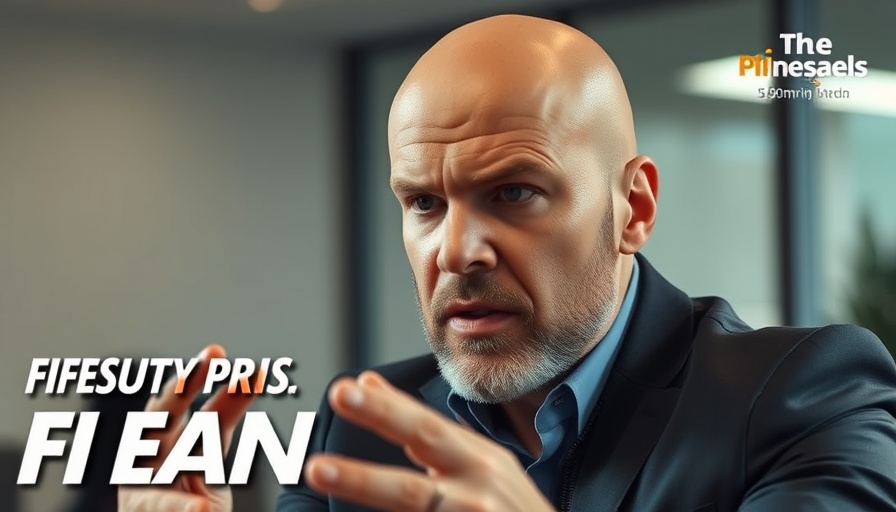
The Controversial Single Justice Procedure: A Look Behind the Curtain
The legal system aims to balance justice with fairness, but the single justice procedure employed in the UK raises questions that cannot be ignored. The recent video titled BBC Ducking Responsibility? sheds light on how individuals can be convicted of crimes, such as TV license evasion, without even being present in court. This procedure has come under scrutiny, particularly due to the BBC's refusal to support reforms aimed at ensuring a fairer legal process for those accused under this framework.
In BBC Ducking Responsibility?, the discussion highlights the contentious single justice procedure, exploring key insights that compel a deeper analysis.
Understanding the Private vs. State Prosecution Divide
At the heart of the issue lies the distinction between private and state prosecutions. The current system allows entities like TV licensing agencies to bring cases against individuals for alleged offenses. Yet, unlike state prosecutions that follow stringent guidelines, the processes surrounding private prosecutions can seem insufficiently regulated. With nearly 28,542 prosecutions in recent years, the need for a robust judicial process becomes even more essential for justice.
The Gender Gap: Why Are Women Disproportionately Affected?
Statistics reveal a troubling trend in prosecutions related to TV license fees. Historically, around 75% of those prosecuted have been women. This disparity highlights not just individual financial burdens but broader societal issues that impact women, especially during challenging economic times. As many families are currently grappling with rising living costs, it’s crucial for the justice system to adapt and consider economic background as a part of the legal narrative.
Potential for Reform: What Needs to Change?
The proposed reform suggests that TV licensing should be required to review mitigation letters prior to pursuing prosecution. This change could protect individuals from unnecessary legal action when genuine circumstances prevent them from paying their license fees. However, the BBC claims that reviewing every mitigation is impractical and inefficient, a stance that many legal experts, including magistrates, contest. They argue that a proactive approach could eliminate undue strain on the court system while also safeguarding the public interest.
The Public Interest Test: Its Role in Fair Prosecutions
The public interest test is crucial in determining whether an individual should face prosecution. The current system allows prosecution to proceed without considering this critical aspect if individuals fail to respond. In essence, the duty to ensure just outcomes should not fall solely on the shoulders of the accused, especially when the consequences may affect their livelihoods. A reformed system that examines these circumstances preemptively could lead to a more equitable alternative.
A Future Vision: Rethinking the TV License System
As public sentiment shifts towards the need for reform, it’s imperative to consider what the future of the BBC’s license fee system might entail. There are growing discussions that the current structure might not be sustainable, both financially and socially. Striking a balance between funding public broadcasting and ensuring fair legal processes for its contributors is essential.
The insights raised in the video BBC Ducking Responsibility? showcase significant gaps within the current legal framework, particularly regarding TV license prosecutions. The discrepancies not only burden those already struggling economically but also encourage a legal environment that lacks advocates for fairness and public interest. It’s time to call for a revamp of this system—a move that can uplift many and pave the way for more just processes in the future. If you find these issues pertinent to your own financial experiences, consider advocating for change in your community and sharing your perspectives on these pressing matters.
 Add Row
Add Row  Add
Add 




Write A Comment